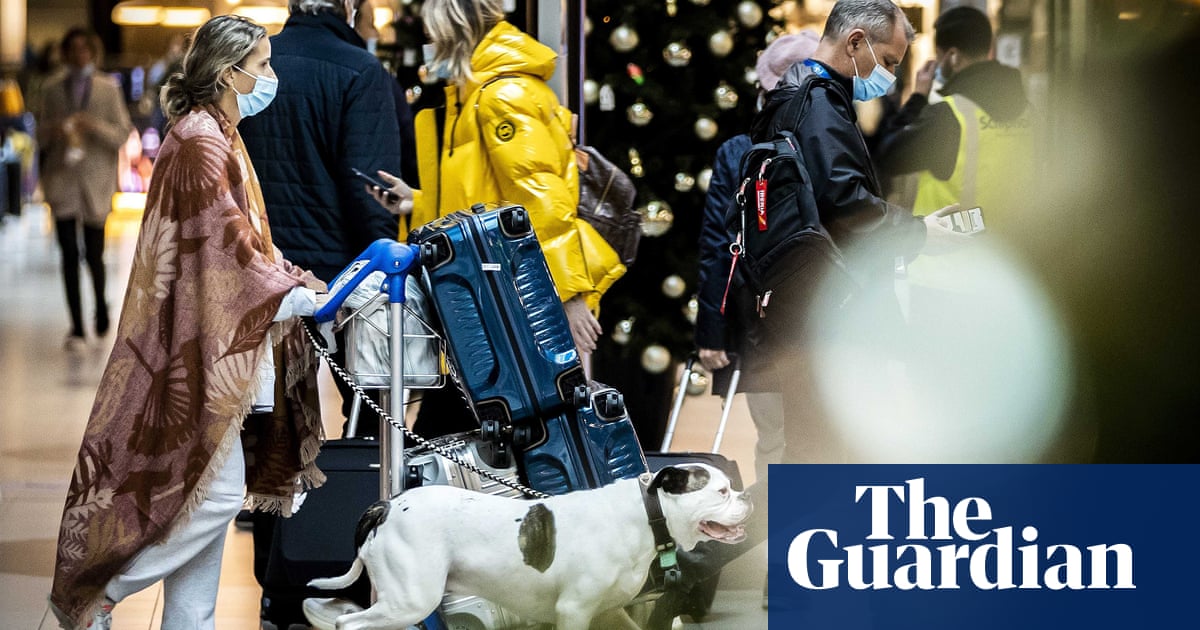
The Omicron variant of Covid-19 was present in Europe at least 10 days ago, even before South African health experts raised concerns about the transmissibility of the newly identified variant.
The Dutch health authority said it had found the Omicron variant in two local cases, showing it was already in western Europe.
Omicron was found in two samples from November. Positive cases were found in passengers returning from South Africa last Friday, but the findings before that were not found.
Doctors in South Africa report that patients are suffering mostly mild symptoms so far, but warn that it is early. Most of the new cases are in people in their 20s and 30s who don't get as sick from Covid-19 as older patients.
As countries around the world disclosed scattered instances of Omicron, the new variant appeared to be following previous patterns of dispersal and identification that have seen health authorities race to play catch up, with most cases related to travel to southern Africa.
The European Union's medical agency chief said on Tuesday it is ready to deal with the new Omicron variant, and that it will take two weeks to have an indication on the current Covid-19 vaccines.
The European Medicines Agency's Executive Director said it would take up to four months to get the vaccine approved for use in the EU.
The medical industry is already working to prepare for such an event, according to the EU lawmaker.
We know that at some point there will be a change in approach.
The emergence of the new variant, which has a large number of mutations on its spike protein, has prompted travel bans and new restrictions in a number of countries, as others moved to accelerate vaccination programmes.
While the majority of current coronaviruses cases in Europe remain the Delta variant, some experts fear that Omicron could escape the protections of current vaccines and compete with Delta for dominance.
According to the head of the EU's public health agency, 42 cases of the Omicron variant have been identified in 10 European countries.
The European Centre for Disease prevention and Control (ECDC) has confirmed six more cases, which are mild or without symptoms, according to the chair of the centre.
Travelers from South Africa can take a coronaviruses test at the airport. Remko de Waal is pictured.
We have to wait for the investigations in the laboratories with the sera from people who have recovered before we can make a determination on whether [Omicron] escapes immunity. She said that these are expected in a couple of weeks.
One of the Israeli doctors who returned from a conference in London has the variant. The Sheba Medical Centre in Tel Aviv said that the doctor who had returned from Britain probably had an STD and that he and his colleague had received three doses of the vaccine.
The World Health Organization has warned that the Omicron variant is very high and could lead to surge with severe consequences.
On Tuesday, Japan confirmed its first case of a visitor from Namibia, a day after banning all foreign visitors as a precautionary measure.
The patient, a man in his 30s, tested positive at Tokyo's Narita airport on Sunday. He is being treated at a hospital.
Researchers in South Africa identified the new variant last week.
The Omicron variant has some uncertainties, according to WHO.
Preliminary evidence shows that the variant has a chance of being able to spread from one person to another and evade an immune-system response.
While scientists are looking for evidence to better understand this variant, countries should accelerate vaccinations as quickly as possible.
Agencies contributed to the article.
